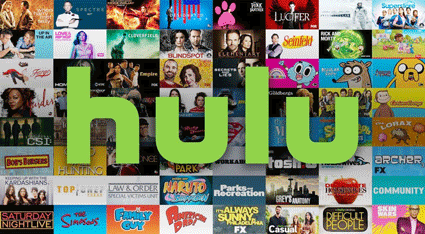A joint venture among the movie studios since 2006, Hulu now has only one controller: Disney. How will the world’s second-largest streaming service fare in this new era? Center director Jeffrey Cole explores the possibilities.
______________________________
By Jeffrey Cole
One of the powerful lessons we have learned in the Center’s work is that digital disruption usually comes without warning when it decimates an industry. This is true of the music business. In the earliest days of the internet, you could download a song on Napster in 40 minutes. While that sounds interminable today, 20 years ago it meant you could start downloading, go make something to eat, take a phone call and come back to a completed song.
 To download a movie took 100 hours. The film and television business had an ally in the battle against disruption: time. They knew what was coming and that ultimately (five years later) their content would be stolen as well. But they had the gift of warning and a chance to take a breath, think, and prepare.
To download a movie took 100 hours. The film and television business had an ally in the battle against disruption: time. They knew what was coming and that ultimately (five years later) their content would be stolen as well. But they had the gift of warning and a chance to take a breath, think, and prepare.
One impressive thing that came out of that preparation was Hulu. The studios did not sit back and wait to be disrupted. They wanted to be ready when broadband made them as vulnerable to disruption as the music business.
Hulu was announced in March 2006. The initial partners were planned to include AOL, NBC Universal, Comcast, Facebook, MSN, MySpace, and Yahoo! After some shakeout (MySpace entered a downward spiral) and equity companies buying and selling, Hulu successfully operated for the past years as a joint venture of Fox (30%), NBCUniversal Comcast (30%), Disney (30%), and Warner (10%).
Until now.
Hulu did what its studios’ owners intended when they founded it: it gave them a beachhead in the digital revolution and particularly in streaming. At the same time, as Hulu grew, Netflix transitioned out of the red envelope DVD business to become the most successful streaming company in the world.
Unlike Hulu, which was only available in the U.S., Netflix experienced phenomenal growth worldwide and used that massive infusion of revenue to supplement its old movies and television with (this year alone) $12 billion of original programming.
Hulu’s growth was solid but more modest. It bought the rights to a lot of old television programs, including high-profile shows like Seinfeld. Its move into original programming was smaller (we estimate about $1.5 billion of original programming), but it was money well spent. Early in its move into originals, Hulu won the Emmy for Best Dramatic Series for The Handmaid’s Tale. It premiered high profile mini-series such as Stephen King’s November 22, 1963 and George Clooney’s production of Joseph Heller’s novel, Catch-22.
_______________________________________________________________________________________
Hulu has survived and thrived as the scrappy underdog to Netflix and now should be enjoying its moment of glory with bigger budgets and a move into international. Let’s hope it gets that chance.
_______________________________________________________________________________________
While Netflix viewers all pay a monthly fee, Hulu developed a hybrid system that combines subscription fees and advertising. By 2019, it had 25 million subscribers. That figure made it a solid number two in streaming in the U.S., but it still has only about 40% of Netflix’s base.
Everything was going well for Hulu. At the IAB Leadership Conference, looking at its impressive growth, strong management, and unique ownership structure, I proclaimed 2017 “the year of Hulu!” They certainly fulfilled my prediction.
Being owned by four studios gave Hulu enormous strength. Administratively, it may have been a nightmare of governance, but that meant that no one studio could use it as its private vehicle serving its own needs. Hulu nimbly navigated among the studios. All its owners were committed to building a strong rival to Netflix, but none saw their share as big enough to spend too much time on it or try to interfere.
The studio ownership structure changed dramatically in 2017. Rupert Murdoch, the most powerful man in the media and entertainment business, realized he had become a small player. Murdoch didn’t get small, everyone around him (Apple, Amazon, and others) got big. He tried to get bigger in 2014 by buying Time Warner. He was rebuffed.
Murdoch’s style was to acquire and grow rather than contract and sell. But by 2017, he realized he was too small to compete against the new players. He announced that Fox would sell its film and television assets (and cable and sports channels) to Disney for $52.4 billion.
The Comcast complication
Brian Roberts at Comcast also recognized the size of the new players in the entertainment business. As big as NBCUniversal Comcast was, he realized that it was not big enough, so he made noises about also submitting a bid for Fox.
Eventually Comcast did make a bid. Murdoch made it clear that he wanted Fox to be acquired by Disney. (He was greatly impressed by Bob Iger and even saw a possibility that his son James would move to Disney; he would also become Disney’s biggest shareholder.) Even though he wanted his assets to end up at Disney, he was thrilled to sit back and watch Roberts raise the ante. Eventually Disney had to pay an additional $20 billion to acquire Fox. That money went to the Murdochs, although James did not end up at Disney.
It had gotten personal between Iger and Roberts. Now they both fought over the satellite channel, Sky, Murdoch’s real prize in Europe. In that war, Roberts won.
Brian Roberts has always worked quietly out of the spotlight. His father, Ralph, built Comcast into the nation’s largest cable company, but in a world of very high-profile characters (John Malone, Chuck Dolan, Ted Turner), Ralph Roberts habitually kept a low profile. He passed that trait down to his son.
There are a lot of similarities between NBCUniversal Comcast and Disney. Both own successful studios (Universal and Disney), both own broadcast networks (NBC and ABC), both own theme parks and cable channels. They are the biggest rivals among the five studios. Roberts does not plan to take second place to Disney.
The next battle
Having gone two rounds against each other (Fox and Sky) with one win each, Iger and Roberts had one more round to go: Hulu.
The acquisition of Fox meant that Disney added Fox’s 30% ownership of Hulu to their own 30%, giving them control of the streaming giant. Soon after the Disney-Fox deal went through, AT&T, still digesting its $85 billion purchase of Time Warner (a few years after spending $50 billion on DirecTV), was happy to lessen its $185 billion debt by selling its 10% stake in Hulu to Disney for $1.43 billion. Disney now has 70% of Hulu.
For a while, it looked like Roberts might enjoy keeping Disney from owning 100% of Hulu. He could command a couple of seats on the board and be privy to its strategy. But, clearly, he has other assets to acquire in other wars he plans to wage.
_______________________________________________________________________________________
Hulu did what its studios’ owners intended when they founded it: it gave them a beachhead in the digital revolution and particularly in streaming. At the same time, as Hulu grew, Netflix transitioned out of the red envelope DVD business to become the most successful streaming company in the world.
_______________________________________________________________________________________
NBCUniversal Comcast recently agreed to sell their 30% ownership to Disney with an agreement that Disney would purchase Comcast’s share by 2024 at market value with a guaranteed floor price of $27.5 billion. (Don’t miss George Geis’s superb analysis at Streaming Vectors.)
Now, Hulu, the streaming service that spent 13 years as a jointly operated company of as many as four studios, is completely controlled by one. This occurs as Disney is premiering its own streaming service (Disney+), a competitor for the consumer’s wallet at $6.99 a month, on November 12.
Disney is completely preoccupied with launching its own service. What will it do with Hulu?
In the best scenario, Disney will see Disney+ as the home of Marvel, Star Wars, Pixar and traditional Disney content. They will use Hulu to make more edgy content such as The Handmaid’s Tale and Catch-22. Everyone wins.
In a less pleasant scenario, Disney starves Hulu of funding. Lots of money goes to Disney+, but Hulu gradually fades into irrelevance. Hulu would be better served to be owned by a studio who views it as the jewel in its crown rather than as a rival for production funding and marketing budgets.
Ironically, Disney has the same problem on the movie studio side, having acquired Twentieth Century Fox Film. Will Fox Film survive as a separate studio making content such as its recent massive hit, Bohemian Rhapsody? Or, will it be consumed by the Disney Film division and lose its identity? Already, many top Fox Film executives (duplicating Disney Film personnel) have been shown the door.
Hulu has survived and thrived as the scrappy underdog to Netflix and now should be enjoying its moment of glory with bigger budgets and a move into international. Let’s hope it gets that chance.
____________

Jeffrey Cole is the founder and director of The Center for the Digital Future at USC Annenberg.
See all columns from the center.
June 26, 2019

